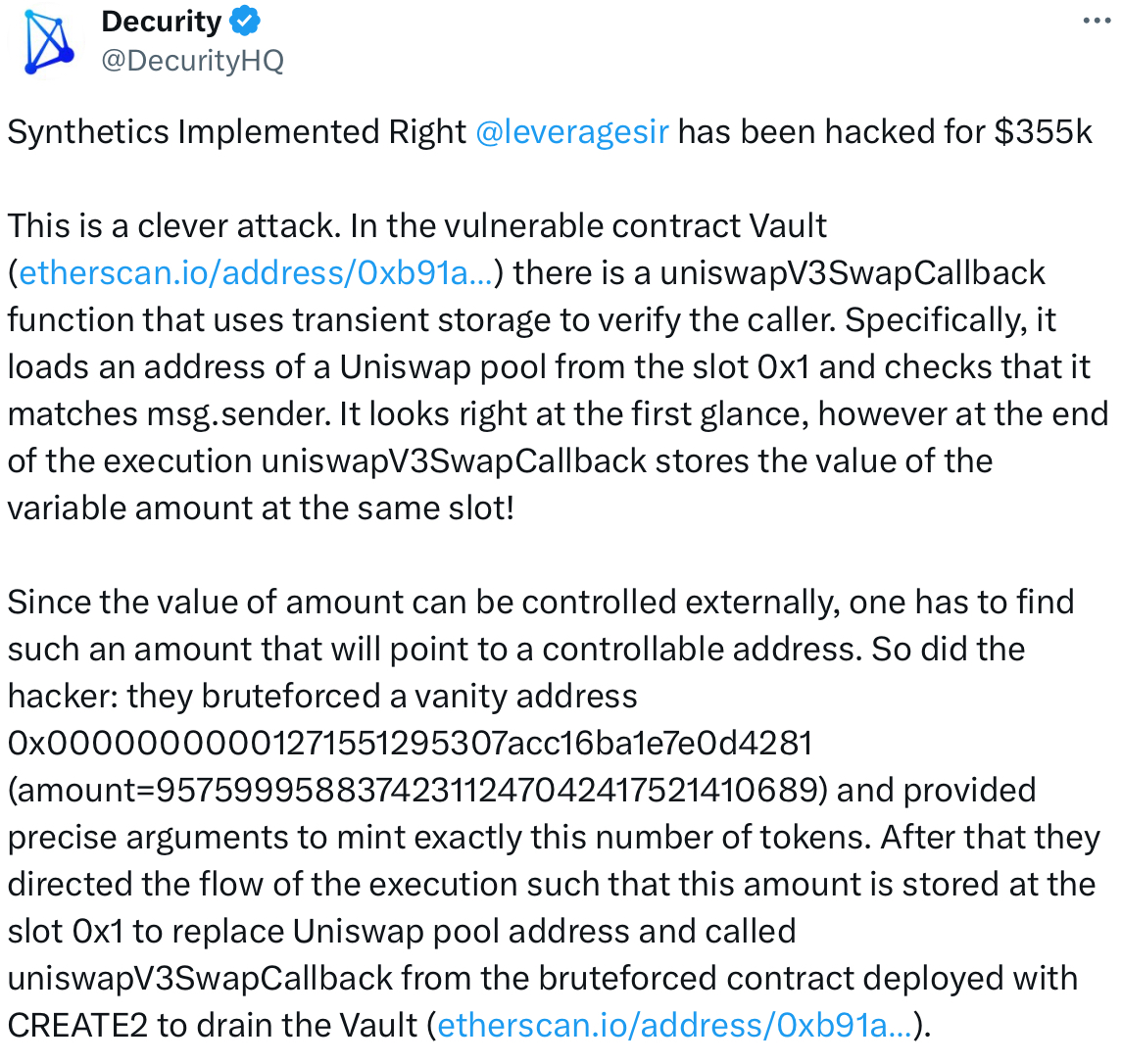Ethereum-based DeFi protocol SIR.buying and selling, also called Synthetics Applied Proper, has been hacked, ensuing within the lack of its total whole worth locked (TVL) — $355,000 on the time of the assault.
The hack, which occurred March 30, was initially detected by blockchain safety corporations TenArmorAlert and Decurity, each of which posted warnings on X to alert customers of the protocol.
The protocol’s founder, recognized solely as Xatarrer, described the hack as “the worst information a protocol may acquired [sic],” however advised they intend to attempt to preserve the protocol going regardless of the setback.
Supply: SIR.trading on X
“Intelligent assault” focused contract vault
Decurity described the hack as a “intelligent assault” that focused a callback operate used within the protocol’s “weak contract Vault” which leverages Ethereum’s transient storage characteristic.
Based on Decurity the attacker was in a position to substitute the true Uniswap pool tackle used on this callback operate with an tackle below the hacker’s management, permitting them to redirect the funds within the vault to their tackle. TenArmorAlert additional explained that by repeatedly calling this callback operate, the attacker was in a position to totally drain the protocol’s TVL.

Supply: Decurity
SupLabsYi, from blockchain safety agency Supremacy, went into extra detail on the assault in an X put up, stating it could exhibit a safety flaw in Ethereum’s transient storage.
Transient storage was added to Ethereum with final yr’s Dencun improve. The brand new characteristic permits for non permanent storage of information resulting in decrease gasoline charges than common storage.
According to SupLabsYi, it’s nonetheless a “nascent characteristic,” and the assault could also be one of many first to take advantage of its vulnerabilities.
“This isn’t merely a risk aimed toward a single occasion of uniswapV3SwapCallback,” SupLabsYi stated.
TenArmorSecurity said the stolen funds have now been deposited into an tackle funded by the Ethereum privateness answer, Railgun. Xatarrer has since reached out to Railgun for help.
Associated: DeFi hacks drop 40% in 2024, CeFi breaches surge to $694M — Hacken
SIR.buying and selling’s documentation reveals that it was billed as “a brand new DeFi protocol for safer leverage.” The said goal of the protocol was to deal with a number of the challenges of leveraged buying and selling, “similar to volatility decay and liquidation dangers, making it safer for long-term investing.”
Whereas it aimed for safer leveraged buying and selling, the protocol’s documentation did warn customers that regardless of being audited, its good contracts may nonetheless include bugs that might result in monetary losses — highlighting the platform’s vaults as a specific space of vulnerability.
“Undiscovered bugs or exploits in SIR’s good contracts may result in fund losses. These may stem from advanced logic in vault mechanics or leverage calculations that audits did not catch, exposing customers to uncommon however essential failures,” the undertaking’s documentation states.
Journal: What are native rollups? Full guide to Ethereum’s latest innovation






